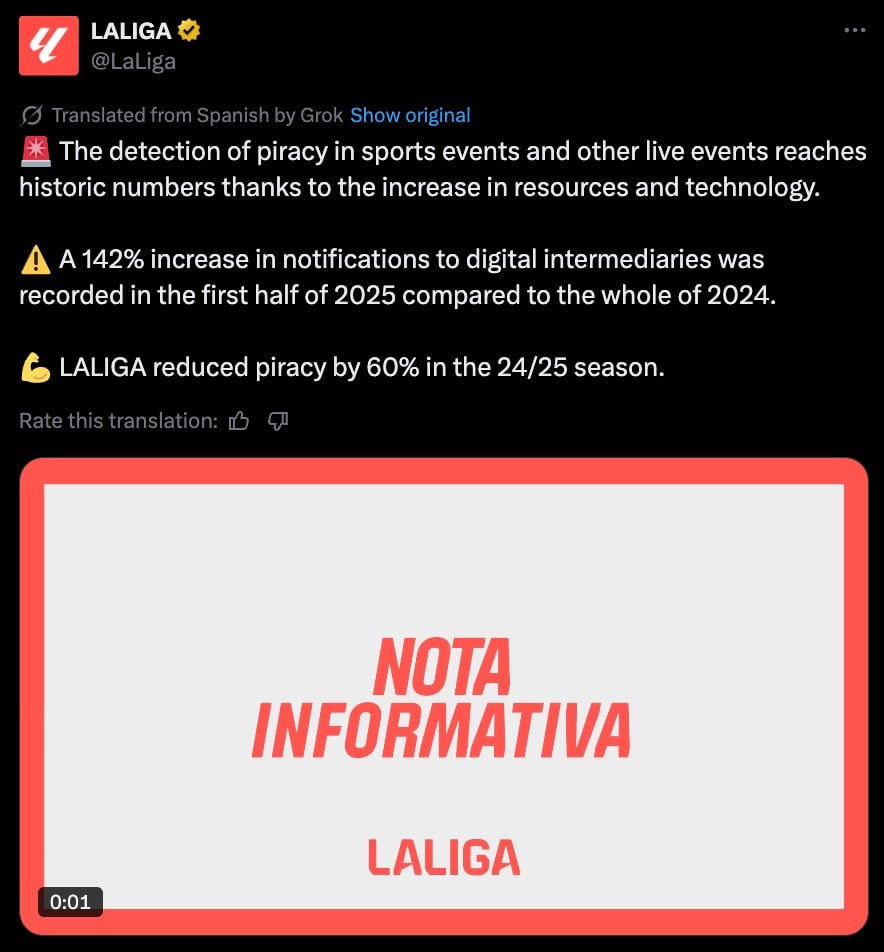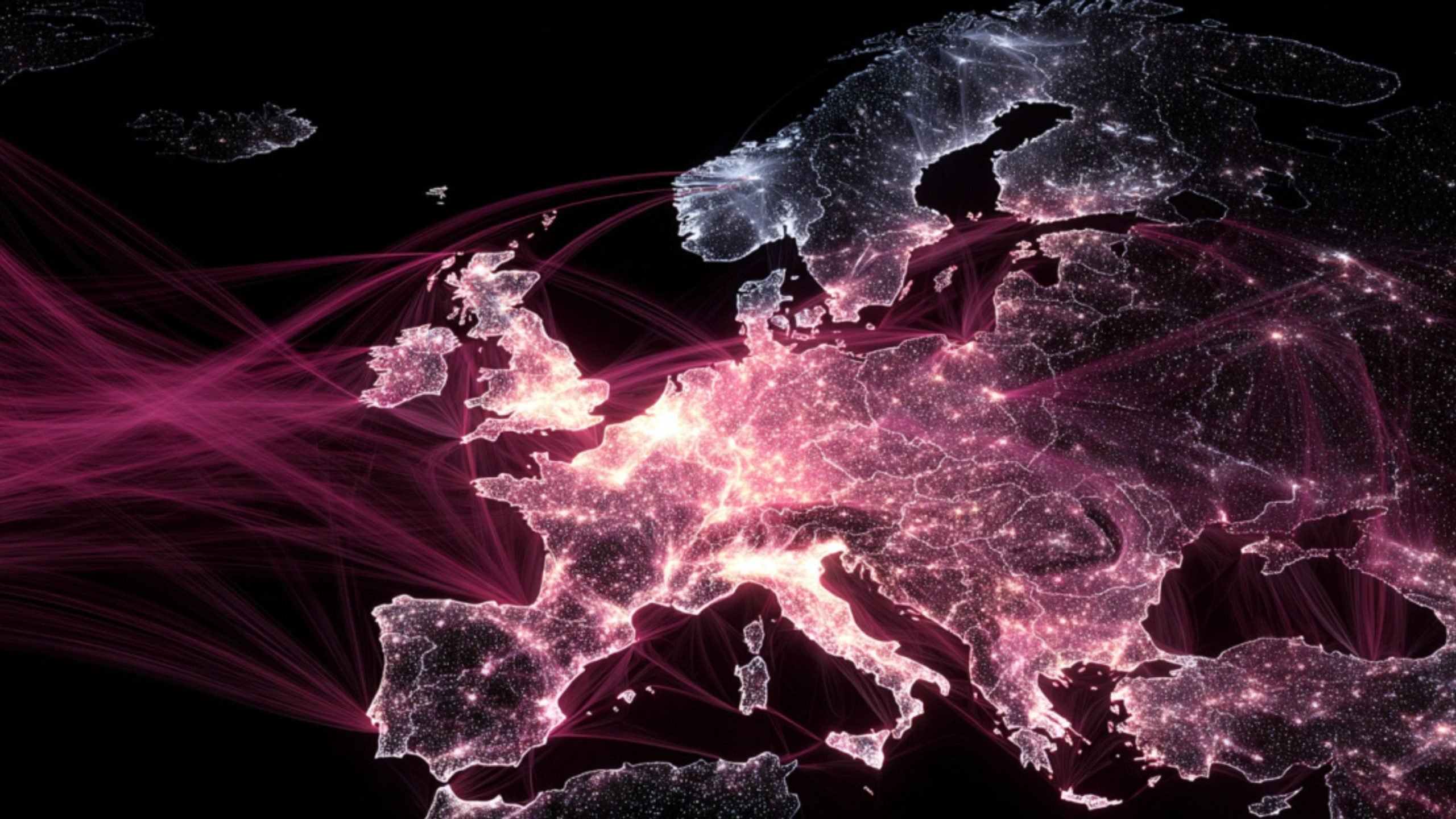LaLiga, Spain’s top football league, is facing a firestorm of criticism after boasting about a staggering 142% increase in anti-piracy takedown notices in early 2025 while simultaneously causing extensive collateral damage across the internet.
As the 2025/2026 season began on August 15, LaLiga ramped up its enforcement strategy, triggering widespread outages for entirely lawful websites, services, and platforms.
These disruptions are tied to a controversial anti-piracy scheme operated in partnership with telecom giant Telefónica.
The initiative, which enjoys judicial backing in Spain, allows LaLiga to instruct major internet service providers, including Movistar, Vodafone, Orange, and DIGI, to block IP addresses suspected of hosting unauthorized streams.
The fallout is that entire chunks of the internet go dark for Spanish users, often during match broadcasts.
LaLiga doesn’t target specific infringing content. Instead, it flags entire IP ranges, many of which are shared by thousands of unrelated domains.
When one site is accused of hosting pirated material, everyone else sharing that IP address gets swept up in the block.
The result is a digital dragnet that has ensnared companies as diverse as Amazon, Cloudflare, GitHub, Twitch, and even Google Fonts.
TorrentFreak has documented repeated weekly blocks of platforms like Vercel since early 2025, while Catalonia’s own .cat domain registry has also reported service disruptions.
The issue became so disruptive that iXsystems, the team behind TrueNAS, a widely used open-source NAS operating system, was forced to shift its distribution model entirely. After its CDN IPs were repeatedly blocked in Spain, making critical security updates inaccessible to users, the developers resorted to distributing their software via BitTorrent.
“These locks have a significant collateral damage about legitimate services, which have nothing to do with football piracy,” TrueNAS noted. Their solution not only bypasses censorship but hands the bandwidth burden back to the same ISPs complicit in the blocking.
In TrueNAS’s official community forums, users from Spain, Italy, and France reported ongoing issues with downloads and connectivity.
Some turned to VPNs to circumvent the blocks, though even popular providers like Cloudflare’s free WARP service were reportedly blocked during peak match times.
LaLiga, meanwhile, continues to tout its enforcement record. A self-published report revealed that over 26 million takedown notices were sent in the first half of 2025 alone, more than doubling the total from all of 2024.

Yet despite this surge, only 11% of flagged streams were actually taken offline. LaLiga’s primary targets include hosting services and infrastructure providers, where enforcement remains minimal.
Legal challenges to the league’s blocking strategy are piling up. Cloudflare and RootedCON have taken their grievances to Spain’s Constitutional Court after lower courts refused to curb the overreach.
Despite mounting pressure, there is no indication that the blanket blocking will stop. On the contrary, as the new season unfolds, users are bracing for more censorship.
Calls for reform are growing louder. Opponents of the regime argue that the current system punishes lawful users while failing to meaningfully curb piracy.
As long as courts uphold LaLiga’s authority to dictate who gets to be online during football games, entire swaths of the internet will remain at risk, collateral in a campaign that blurs the line between protection and overreach.
The reality is clear. LaLiga’s war on piracy has become a war on the open web.










